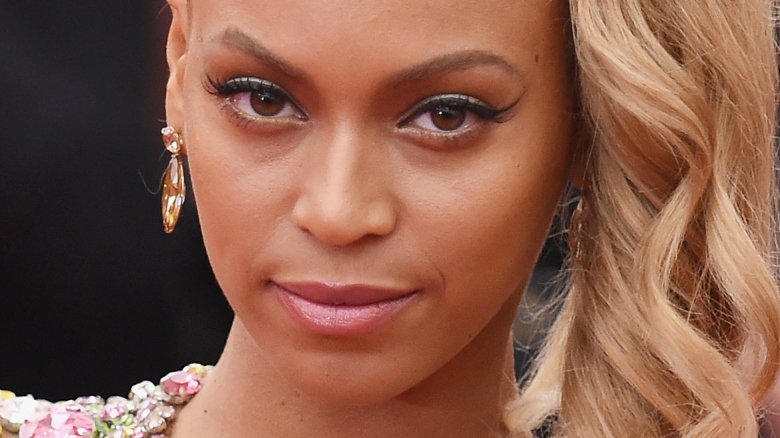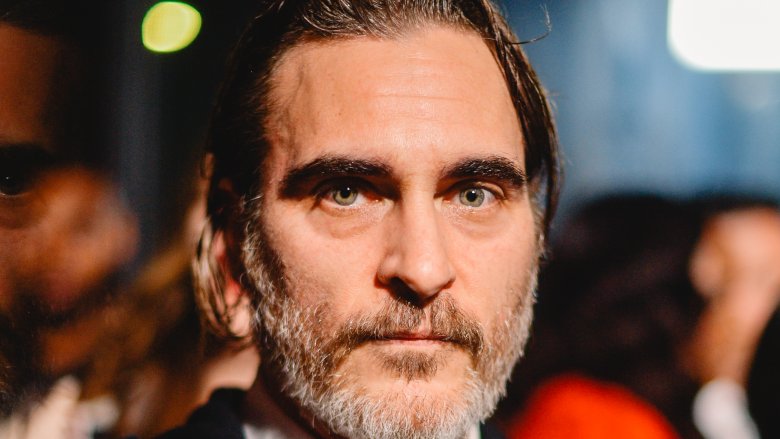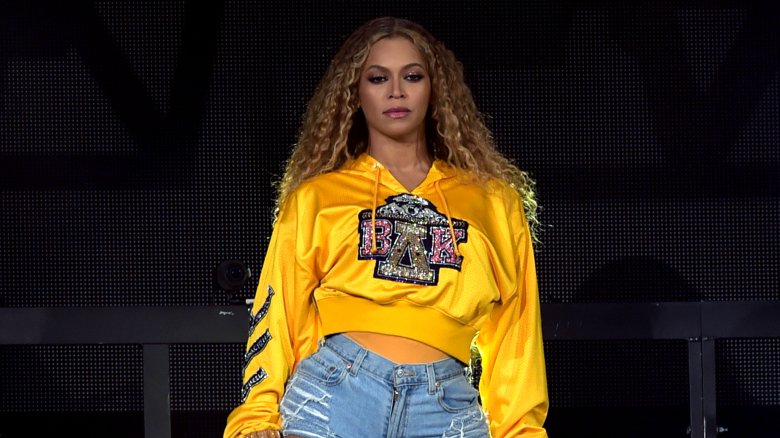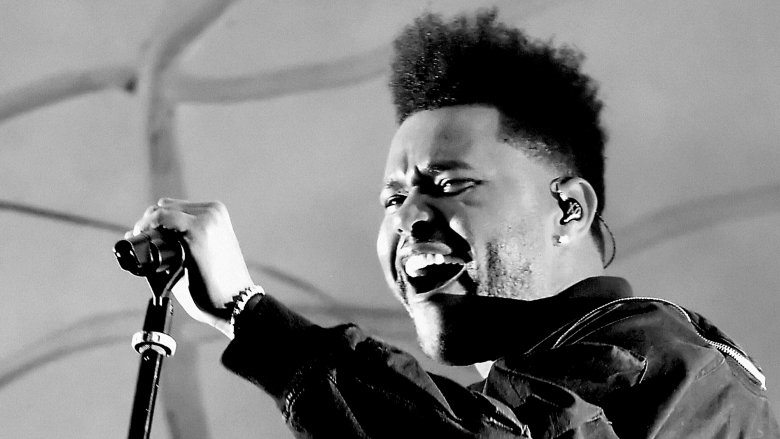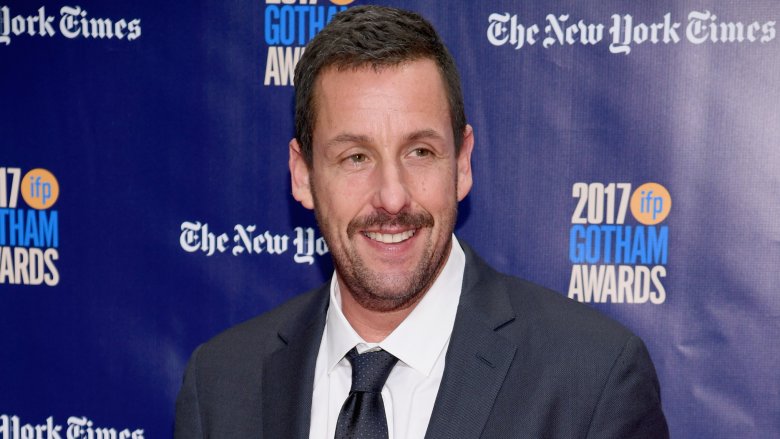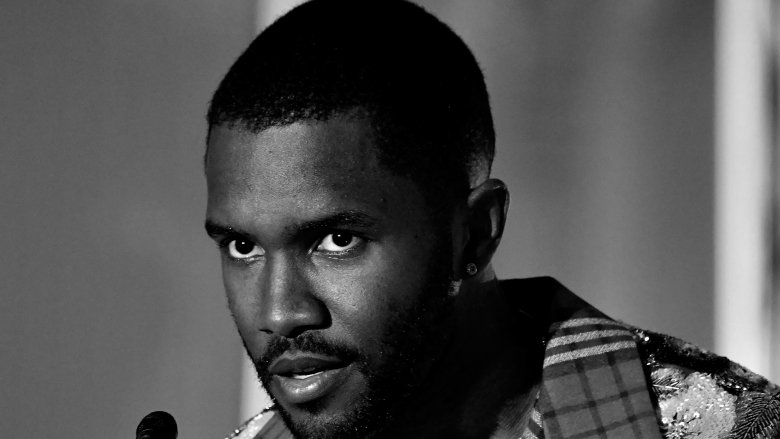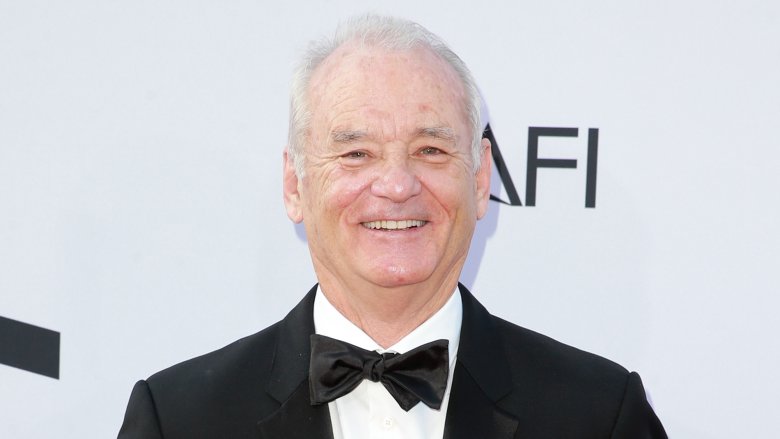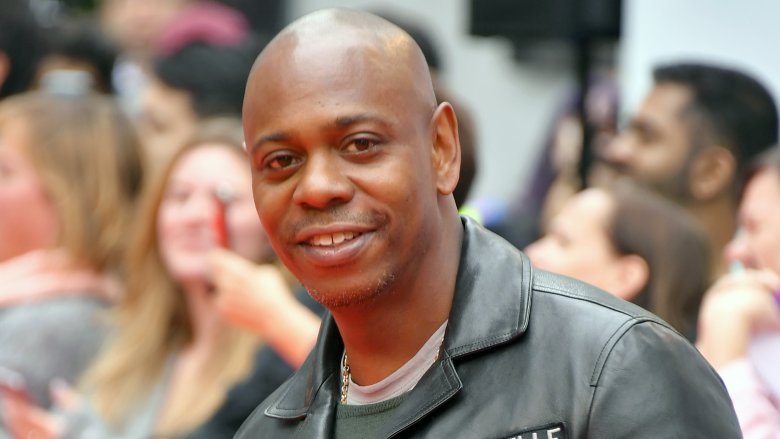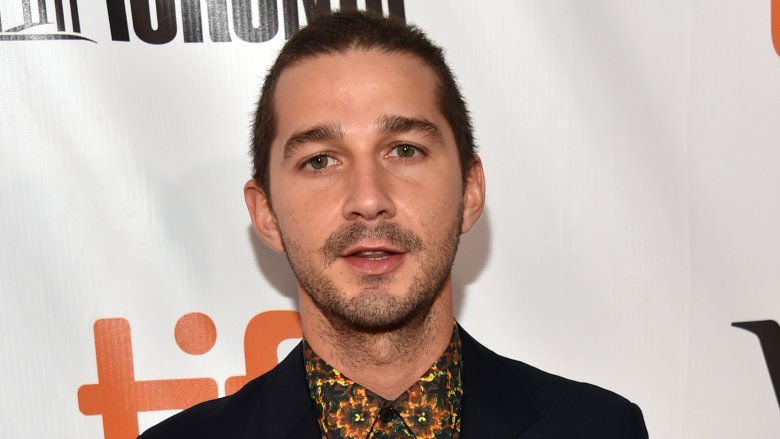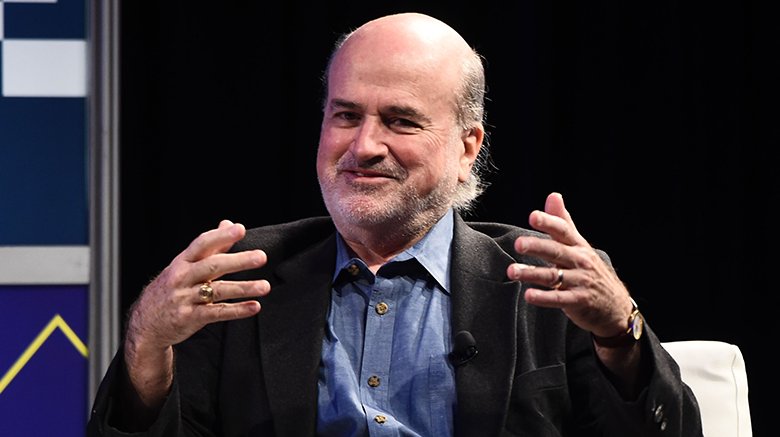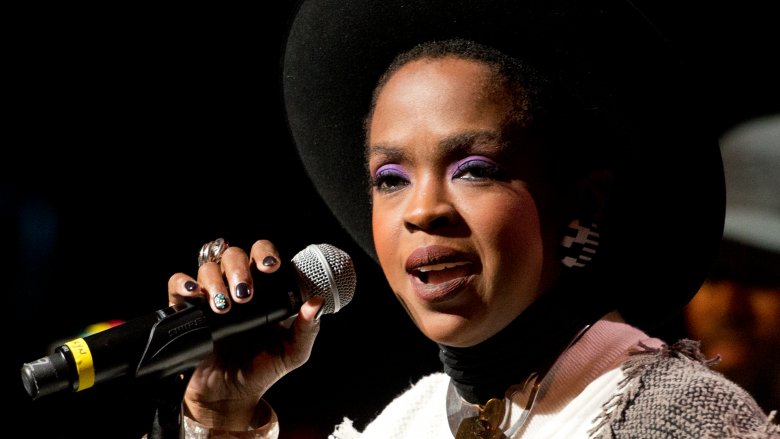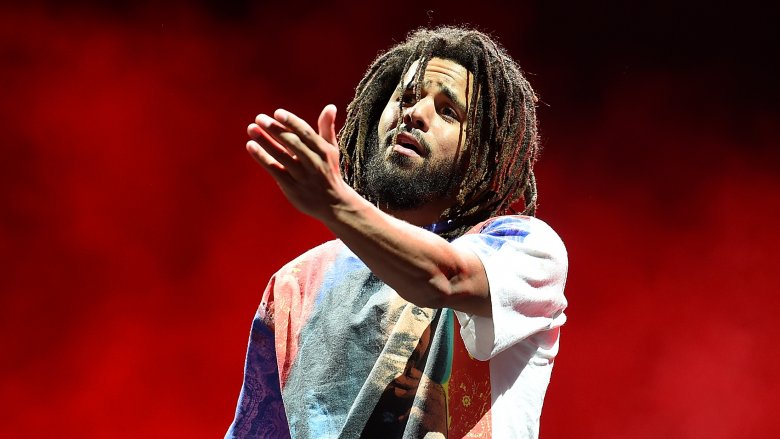Why These Celebs Rarely Give Interviews
These days, people can find out nearly anything they want about celebrities. There is so much information available and such ease of access that many fans are more connected to celebrities than they are to their neighbors.
Between interviews and social media, few stars can hide from this intense spotlight. But there are a few who have managed to keep some mystery in their lives. Whether they wish to control their own voice, avoid over-saturating the market with their image, are simply shy, or have some other reason, the following celebrities have kept their interviews to a minimum.
Thanks to their lack of interviews, many of these stars have been considered mysterious, enigmatic, or genius, whereas others are perceived as self-righteous or arrogant. The truth is, every one of these silent celebrities avoids interviews intentionally. You may not agree with their reasons, but at least, now, you'll have them.
Here are the reasons why these celebs rarely give interviews.
Joaquin Phoenix is still shy after all these years
Joaquin Phoenix's reasons for avoiding interviews could be quite simple. After all, he once told Shortlist, "I f**king hate interviews." But there may be something more complex there, like a lingering distrust of the media that turned the death of his brother, River, into a sideshow of sorts. With his 9-1-1 call leaked and the press hounding Phoenix for a response, the actor left Hollywood altogether for a while.
After such a long and celebrated career, Phoenix still isn't what you would call comfortable in the spotlight, especially when he's not on set. "I don't mind one-on-ones occasionally, or round-tables where there's a discussion," he told the Independent. "It's the TV stuff I struggle with where it's just soundbites — I f***ing hate that, and press conferences where you're up on a stage and people are down there constantly taking pictures, it's f***ing awkward."
It seems that while Phoenix loves acting, he also loves the regular life. He is not, what he calls, "a career actor," a person who never stops working. So he leaves. On at least two occasions, Phoenix has walked away from the industry. Even when his brief retirement was hoaxed for the film, I'm Still Here, there was real inspiration behind his departure. "I wanted out," he said to The Guardian. "I wanted my f***ing life back."
Beyoncé and the art of voice control
Of all the true superstars in the world, Beyoncé may be the most inaccessible. In her self-produced documentary, Beyoncé: Life Is But a Dream, the singer spoke of her longing for a private life. "When Nina Simone put out music, you loved her voice," she said (via Flavorwire). "That's what she wanted you to love. You didn't get brainwashed by her day-to-day life. That's not your business. It shouldn't influence the way you listen to the voice and the art, but it does."
It is likely because of this thinking that Beyoncé neglects to give the public everything. Well, that and the fact that she can get away with it and still be incredibly successful. The singer went more than a year without answering "any direct questions," according to the New York Times, who also reported that her 2015 cover of Vogue Magazine was the first in at least five years that the fashion mag allowed without an accompanied interview.
This is strategic, says writer Margo Jefferson (per the Times). "She has to be studying how effective her interviews have been so far. She may have decided that they do not contribute as dazzlingly to the portrait of Beyoncé as the other stuff. It's a perfectly reasonable decision." Rather than face-to-face interviews, Beyoncé often writes emails or releases edited or pre-taped responses. She also posts what she wants and when she wants to social media. In these ways, she controls her voice.
Who is The Weeknd?
While The Weeknd may have relaxed a little in his media restrictions, there was a time not that long ago that he was virtually unknown, all in spite of his massive hits and allure. There seems to be two sides to the secrecy of the crooner whose real name is Abel Tesfaye: one part strategy and the other insecurity.
It started with the latter. "I was everything an R&B singer wasn't," he told Rolling Stone. "I wasn't in shape. I wasn't a pretty boy. I was awkward as f**k. I didn't like the way I looked in pictures." The singer also didn't trust his vocabulary. "I still have this insecurity when I'm talking to someone educated," he said. But then something happened. The mystery led to intrigue.
"We live in an era when everything is so excessive," he said. "I think it's refreshing for everybody to be like, 'Who the f**k is this guy?'" So Tesfaye decided to "run with the whole enigmatic thing," a strategy to keep fans wanting more. Yet, while The Weeknd believes he can extend his career in this way, he knows there's an expiration date to the secrecy and intrigue. As he sings in "Rolling Stone" from 2011, "Until you're used to my face and my mystery fades, I got you."
They're all laughing at Adam Sandler
Adam Sandler has every reason to avoid doing interviews. Over two decades, nearly everything the actor has been in or been a part of has been picked to pieces. The constant and often hurtful critiques of his work and his talents isn't lost on Sandler. "I know what they're writing about me," he told The Independent. "I could almost write the piece for them by now. But then remember that I didn't get into movies to please the critics."
But don't think that Sandler sits around and stews in the criticism. He may feel that that the wholesale hate is uncalled for and unjustified, but he doesn't let it wear him down. "I hear about 'em, and have friends who called me up and told me how much they hated my last thing, and every move I make I hear how they don't like it," he said in an interview with the Daily Beast. "I wish they could calm down a little bit."
The critical negativity that has followed him throughout most of his career is probably good enough reason for him to second-guess the intentions of the press, but Sandler suggests that he avoids print interviews for a more straightforward reason. "I used to be misquoted all the time," he said to ScreenCrush.
You can't control Frank Ocean
For years, Frank Ocean has been one of the most publicly silent figures in the music industry. He was largely absent from social media and, according to O32c, had only done 15 interviews in his career as of August 2018. This didn't stop him from succeeding. He's got gold and platinum albums and singles. He's won a Grammy (and boycotted them), all largely without the help of the traditional press.
When the New York Times asked him about his insistence on retreating from the spotlight, Ocean spoke of how he was "super-envious of the fact that Daft Punk can wear robot helmets and be one of the most famous bands in the world," but that he could never have that. According to him, "It's too late."
That's partially why the star musician made his long-private Instagram account public. For Ocean, not controlling his own message risked becoming detrimental to him. "There's a way you wanna be in the visual press, although you could potentially be misrepresented," he told GQ. "When you're completely minimal with media, there's a lot of pressure on whatever one thing you're doing, the stakes are higher. Social media helps that, 'cause you're fully in control and can message that how you want."
1-800-BMurray
Compared to most of the celebrities included in this list, Bill Murray does interviews and makes public appearances all the time. Yet, while he is visible, the man behind the mythic figure has always been inaccessible. We've seen him awkwardly dodge interviews and heard many different stories about his carefree and whimsical behavior, but Murray's reasons for his lack of true and manicured publicity seems to be that he just doesn't care for it.
You may have heard this one before, but Murray doesn't have a publicist or PR people working for him. If people want to get a hold of the actor, they have to track him down through a friend of a friend or call his 800 number. This, as you can probably imagine, has led to some lapses in communication, and not just between Murray and the press.
In an interview with Esquire, it was mentioned that Robert Downey Jr. wanted Murray for a part in Iron Man, but they couldn't reach him. According to Murray, this is a matter of practicality. "I'm not trying to be coy. It's just practical for me," he said. "When the phone started ringing too many times, I had to take it back to what I can handle. I take my chances on a job or a person as opposed to a situation. I don't like to have a situation placed over my head."
Dave Chappelle goes on a walkabout
Dave Chappelle shocked the world when he walked about from his hit comedy series in 2005. He left behind the spotlight, the money, and nearly all the interviews. For most of the public, he returned in 2014 to the The Late Show with David Letterman promoting an upcoming Radio City Music Hall show.
While there were surely many contributing factors, one of the reasons that Chappelle walked away was because fame was getting to him. On CBS This Morning, the comedian explained that "fame is a horrifying concept when it's aimed at you." He added, "At the end of the day, it's so — you don't have that much control over it. You just try to conduct yourself as best you can."
Though he's back now, Chappelle found new appreciation for the smaller stage and the dimmer spotlight. "I found an altitude I was comfortable with," he said. "I found a way that — to do what I liked to do and avoid some of the parts of it that I was uncomfortable with." For Chappelle, this new altitude meant a more quiet life. "The way that I engaged the world was different," he said.
Shia LaBeouf is not famous anymore
Shia LaBeouf has had a tumultuous time in the public eye. He's had a number of arrests and other unappealing moments that have been written about or captured on camera. Yet, while he's invited the public in on his life and his performances/demonstrations, LaBeouf is maybe more withdrawn, as of this writing, than he's ever been.
His descent from fame probably took its most dramatic leap in late 2013 when he was accused of plagiarizing the work of comic book writer Daniel Clowes when making his short film, Howard Cantour.com. Shortly afterward, LaBeouf went on an apology run, rhyming off different ways of saying "sorry." The fact that many of these apologies were plagiarized as well seems to suggest that LaBeouf was making a statement of some sort.
Then LaBeouf took to Twitter to write, "In light of the recent attacks against my artistic integrity, I am retiring from all public life." He then wore a bag over his head with the words "I am not famous anymore" scrawled on it to the premiere of his film Nymphomaniac at the Berlin Film Festival. He refused to participate in press conferences and conducted silent interviews. This was 2014. Since then, the actor has taken on few straightforward acting gigs and even fewer straightforward interviews.
Terrence Malick is from another time
Not only are there only a handful of published interviews with Terrence Malick, there are only a handful of public photos of the man. Malick speaks so little publicly and participates in so few interviews that even his reasons for avoiding publicity are hazy at best.
Over the years, Malick has become known as one of Hollywood's most reclusive (or private) stars. The legendary director of classics like Badlands and The Tree of Life has kept away from interviews for many years. In fact, he went "nearly four decades" without granting an "on-the-record interview," according to Texas Monthly. After he directed Days of Heaven in 1978, Malick virtually disappeared and wouldn't return until 1998's Thin Red Line.
According to Malick's The Tree of Life star Brad Pitt, the director's aloofness is not manufactured or contrived but rather the result of Malick coming from a different age in Hollywood. "When he started making films in the 1970s, you just made films," Pitt told The Guardian. "Today there are two parts to the job: you get to make something, but it's also become incumbent on us to suddenly sell our movies and that's just not his nature. Terry's more the painter, or even the guy that's plastering the walls or laying the stone. He's just a very humble, sweet man."
Lauryn Hill's secrets uncovered
In August 2018, Lauryn Hill did something that she doesn't do very often. She spoke out. Spurred to action by musician Robert Glasper's controversial comments about her, Hill penned a lengthy blog to clear up some of Glasper's claims, as well as some of the other prevalent rumors. This broke up an extended period of silence from the singer-rapper extraordinaire, who claimed at the time that her "last interview was over a decade ago."
Hill is no stranger to silence. After the release of her celebrated solo album, The Miseducation of Lauryn Hill, she pulled back. "I wanted a real life as well outside of public scrutiny," she said to FUSE (via Idolator). "I wanted that freedom to do whatever I wanted to do." Though she released an MTV Unplugged album in 2002, it would be 12 years until Hill truly came back in 2010.
This time away was not only healing for Hill, it allowed her kids to grow up quietly. Away from the spotlight, they "had normalcy, privacy and the right to be real people without the scrutiny and the pressure and the challenges the media can put up sometimes," what Hill calls "a real childhood." When the NPR writer Zoe Chace landed an interview with Hill in 2010 after her long absence, Chace likened the interview chase to "video game with infinite levels" and the Israelites following the "cloud over the Tent of Meeting." Hill was that hard of a get.
J Cole's notes on interviews
For close to four years beginning in 2014, rapper J Cole stopped doing press. Sure, there was the odd interview, but he largely cut interviews out. Clearly suspicious about the function of interviews, Cole told Billboard that he was "through trying to play whatever game is going on."
Cole told Vulture that interviews rarely hold substance. "Nobody ever asks nobody s**t, that's the f***ing problem," he said. "It's almost like we're asking everybody — Hey, you good? You good, you sure you good, man? Okay, cool. Everybody's f***ing good."
He feels similarly about social media, a reason why he has such a low profile online. Cole seems uninterested in creating a heavily edited persona online. "If I'm in a conversation with somebody and it's natural and it's organic, I'm going to speak freely," he told Billboard. But rarely do I feel the need to hop on Twitter or social media and chime in, especially on rap and music s**t. This s**t is not real. This s**t is f***ing fake. This s**t is high school. This s**t is f***ing celebrity worship."
When he does do an interview, however, people tend to listen. According to radio personality Angie Martinez, who also spoke with Billboard, "in a time where people chronically overshare, there aren't many artists that make people stop what they're doing to hear what they have to say. Cole holds one of those few prestigious slots."

